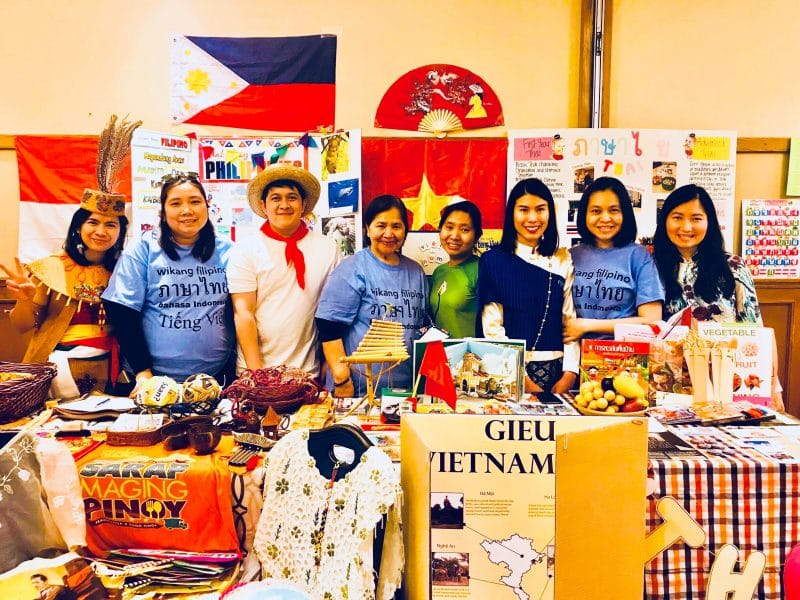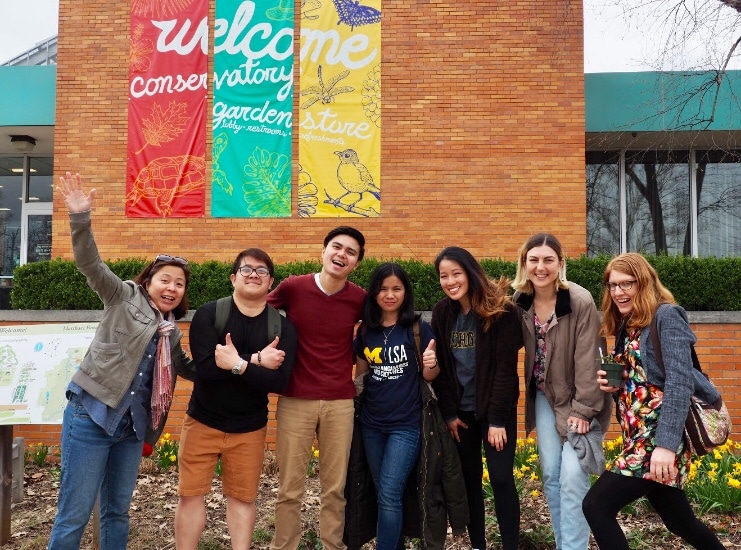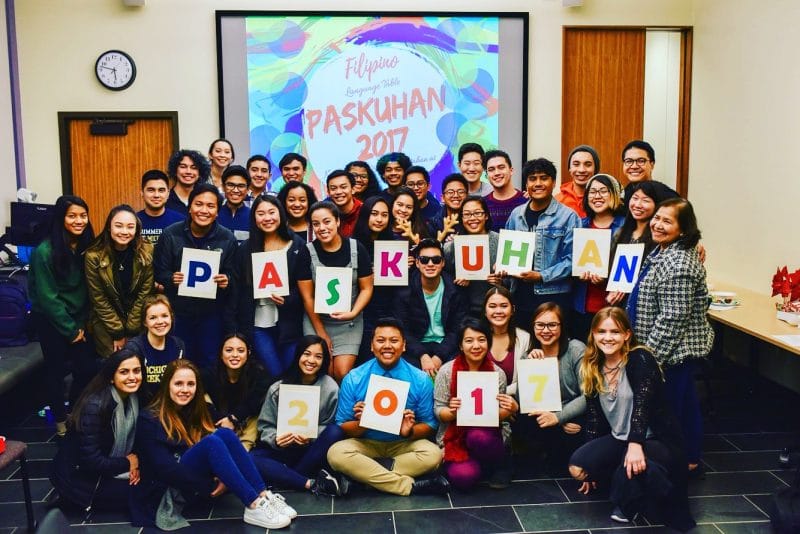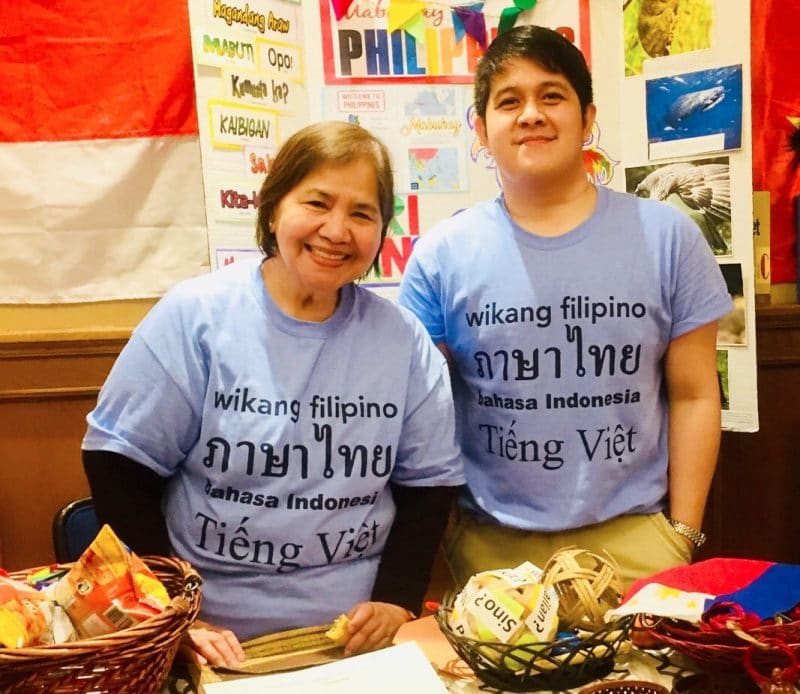
The Fulbright Foreign Language Teaching Assistant (FLTA) Program is for young international teachers from outside the United States. Fellows, who come from over 50 countries, teach their native languages to students at U.S. universities, strengthening foreign language instruction and developing American students’ knowledge of foreign cultures. The FLTA program gives fellows an opportunity to practice their teaching skills, learn about the cultures and customs of their American host institution, and increase their English language proficiency. Fellows receive a stipend to cover room, board, and daily living expenses.
We talked to William Mel Paglinawan, who is originally from the Philippines and was a Fulbright FLTA at the University of Michigan – Ann Arbor. He told us about his experience and gave us some tips for preparing an application!
1. What inspired you to apply for the Fulbright Foreign Language Teaching Assistantship?
It all started when I decided not to pursue a career in academia almost five years ago. Before applying for a Fulbright Foreign Language Teaching Assistantship (FLTA), I was an English language teacher at The Notre Dame of Dadiangas University, a private institution in the Southern Philippines. As a teacher, I desired to learn more so that in return, I could give more also. I had already completed my graduate degree in Linguistics. However, I felt that I should continue to gain experience to develop my pedagogical philosophies. I thought that an international fellowship would make all these things happen.
Soon enough, I was granted the FLTA fellowship and in Fall 2017, I went to the University of Michigan – Ann Arbor. Studying and teaching in this university and being part of this esteemed exchange program has taught me how to become a self-determining and open-minded thinker. As a cultural ambassador, I have become more accepting as I try to understand other cultures. Moreover, I have learned to treasure the Filipino language. Even though it is a less commonly taught language, it is still (and will forever) be significant in diverse and integrated societies. Lastly, I boosted my confidence. This has helped me to be comfortable in the classroom so that I can impact more generations back home.

2. How has your Fulbright experience influenced your current work?
During my five years of teaching in the Philippines, I took part in the design and implementation of some programs in the language department of the university where I was working. It has been thought that curriculum development is not an easy task for educators – in addition to requiring lots of knowledge, it requires dedication and a lot of hard work.
When I arrived in Michigan and had the chance to work with the high caliber professors in the university, I felt that everything seemed to be a challenge. It was as if that the challenges I encountered way back home had doubled when I entered the United States. In the Southeast Asian Language Program of the Department of Asian Languages and Cultures, my greatest challenge adjusting to the academic disciplines and classroom policies. The preparation of syllabus, which has to take into account the needs of the American students and their mindsets, and adjusting to cross-cultural differences were two of the greatest challenges.
Aside from my work teaching, I also organized and co-organized cultural events with my American students. We celebrated Paskuhan and Salu-Salo (to name few), taught some cultural dances and folk songs of the Philippines, and even cooked some Filipino food and watched Filipino movies in a Film Appreciation class. Although there have been challenges, the reward of the overall experience has been so gratifying.
Now, how these experiences have influenced my current work? After my fruitful academic and cultural experience in the US, I came back a transformed person with a new outlook and newly gained resources for language teaching. As a graduate of a Marist Institution in the Philippines, I developed a desire to help the community. I volunteered at community outreach programs. I train some English teachers in my locality by sharing what I have gained during my FLTA experience. As for my other future plans, I will coordinate with other Fulbright Alumni in the Philippines and help them carry out their advocacy projects. Indeed, my Fulbright experiences have opened the door for me to the world and beyond.

3. What tips would you give others applying to the Fulbright Foreign Language Teaching Assistantship?
First off, know that a fellowship – whether a Fulbright scholarship or any other prestigious fellowship, can be a fantastic opportunity. However, don’t apply just because it sounds fun or you’re looking for something to fill your time. Instead, you should identify and establish your goals. Having clear goals enables you to enjoy the opportunity and get the most out of it. A clear goal will allow you to further your interests and, it will help you personally and professionally.
Secondly, build a positive attitude towards yourself and others. As an FLTA, I learned that a spirited attitude would make you succeed and make your entire fellowship grant worthwhile. A positive attitude brings optimism into your life and on your entire fellowship year, and it makes whatever task you’re doing easier, free from worries and negative thinking.
If you’re sure that you already got the first two, then you can start building your personal statement, essay responses, and professional portfolio. In these statements, give the fellowship committee an opportunity to get to know you. Show who you are and why you’re a great fit for the fellowship. Let your application reflect who you are. Then, try to get great and honest recommendations. You should approach those individuals – often your professors or department heads – and explain to them why you want this fellowship and what strengths and skills you would bring to the role. Once given a chance for an interview, you have to be true to yourself and honest about what you want to accomplish. If you only try to be the person you think the fellowship evaluators would want you to be, they’ll see right through it. Even if you don’t have all the “right” answers, if you can convey your passion, you’ve got a good chance of winning a slot.
And lastly, plan an amazing project. In most fellowships, it would be very fulfilling on your part if you will show how the academic experiences from the fellowship will help you in your future. I would suggest that you start planning for a project that will benefit your immediate community first and then, eventually, your home country. You can also start making acquaintances with other fellows and start discussing your projects. This would help you further expand your local and global networking.

William Mel Paglinawan completed his college education at the Notre Dame of Dadiangas University (NDDU) with a Bachelor of Arts (AB) in Mass Communication. He later completed a Master of English in Applied Linguistics (MEAL) at the University of Southeastern Philippines (USeP) in Davao City. He is an Assistant Professor at the Notre Dame of Dadiangas University working on handling language, literature, journalism, and communication subjects. He is active in various community extension services and has facilitated a community teaching program among the children of the B’laan community in Sarangani Province.
Interested in applying? Bookmark the Fulbright Foreign Language Teaching Assistant (FLTA) Program your ProFellow account.
© Victoria Johnson 2018, all rights reserved